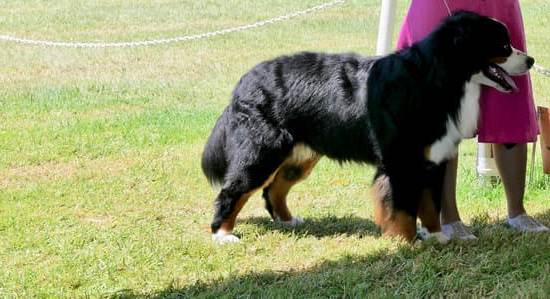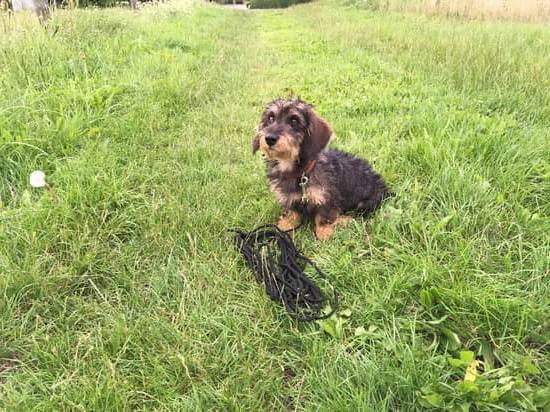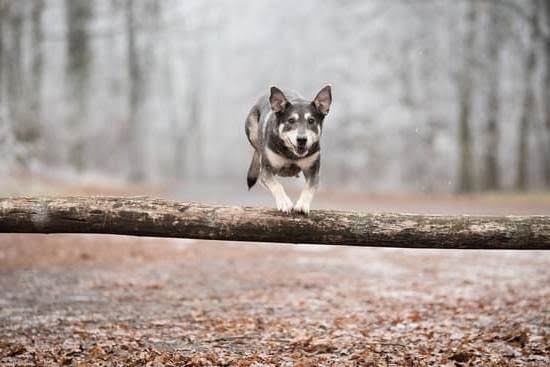Deaf dogs are often misunderstood when it comes to their abilities, particularly in activities such as hunting. Many people may question: can you train a deaf dog to hunt? In this article, we will delve into the world of deaf dogs and explore the possibility of training them for hunting.
Firstly, it’s important to understand how dogs experience deafness and the impact it has on their behavior and training abilities. Deafness in dogs can vary from partial to complete, and this can influence how they interact with their environment and respond to commands. Understanding these nuances is crucial in tailoring effective training techniques for hunting.
Additionally, harnessing the natural hunting instincts that all dogs possess plays a significant role in training deaf dogs for hunting. This instinctual drive can be utilized through specialized training methods and tools tailored to their unique needs. Building a strong bond with your deaf dog is also essential for successful hunting training, as communication relies heavily on visual and vibrational cues rather than traditional verbal commands.
In the following sections, we will explore the specific training techniques and safety considerations associated with hunting with a deaf dog, as well as share inspiring success stories of trained deaf dogs. Whether you’re new to owning a deaf dog or looking to further their hunting abilities, this article aims to provide valuable insights and resources for effectively training a deaf dog for hunting.
The Hunting Instinct in Dogs
The natural hunting instincts in dogs are deeply ingrained and can be traced back to their ancestors, who relied on hunting for survival. These instincts are still present in modern domesticated dogs, regardless of their breed or size. Understanding and harnessing these instincts is crucial when considering training a deaf dog for hunting.
Dogs have an incredible sense of smell and keen eyesight, which are essential components of their hunting instincts. They are also known for their stamina and agility, making them well-suited for activities such as tracking and retrieving game. Whether a dog is deaf or not, these innate abilities can be used to train them for hunting with the right techniques and patience.
When training a deaf dog for hunting, it’s important to tap into their natural instincts in a way that accommodates their hearing impairment. This involves utilizing visual cues, hand signals, and vibrational cues that can effectively communicate commands and instructions to the dog. By leveraging their natural hunting instincts alongside alternative communication methods, deaf dogs can be trained to hunt just as effectively as their hearing counterparts.
Incorporating activities that allow the dog to use its senses and exercise its natural strengths is also crucial in training a deaf dog for hunting. Engaging in activities like scent work, agility training, and retrieving games can help foster the instinctual behaviors required for successful hunting. It’s important to remember that although a deaf dog may require different training techniques, they are just as capable of becoming skilled hunters with the right approach.
- The importance of understanding a dog’s natural instincts
- Utilizing visual cues and hand signals in training
- Incorporating activities that engage the dog’s senses
Training Techniques for Deaf Dogs
Deaf dogs have the same natural hunting instincts as hearing dogs, but they require special training methods and tools to effectively develop these abilities. When considering training techniques for deaf dogs, it’s important to remember that they rely on visual and vibrational cues rather than verbal commands. Here are some specialized techniques and tools that can be used to train a deaf dog for hunting:
- Visual cues: Since verbal commands are not effective with deaf dogs, using visual cues is essential. Hand signals and body language can be used to communicate with the dog during training. These visual cues should be clear, consistent, and easily distinguishable to ensure that the dog understands what is being asked of them.
- Vibrational collars: Vibrational collars can be used to provide tactile stimulation to a deaf dog as a form of communication. These collars can be programmed to emit different vibration patterns for various commands or signals during hunting training. This allows the dog to understand and respond to specific cues based on the vibrations they feel.
- Positive reinforcement: Training a deaf dog for hunting requires patience, consistency, and positive reinforcement. Using treats, toys, or praise as rewards for desired behaviors helps to motivate the dog and strengthen their understanding of the training objectives.
By utilizing these specialized techniques and tools in training a deaf dog for hunting, owners can effectively tap into their natural hunting instincts and create a strong working relationship with their canine companion. While it may require extra effort and creativity, successfully training a deaf dog for hunting is definitely achievable with the right approach.
Bonding With Your Deaf Dog
Deaf dogs, like all dogs, thrive on strong bonds with their owners. In fact, for deaf dogs, this bond becomes even more critical in the training process. Because they cannot rely on verbal commands, they must have a deep level of trust and connection with their human hunting partner. Building and maintaining this bond is foundational to successfully training a deaf dog for hunting.
Establishing Trust and Communication
To build a strong bond with your deaf dog, it’s essential to establish trust and develop effective means of communication. This can be achieved through positive reinforcement training methods such as using treats, toys, or other rewards. Additionally, physical touch and hand signals can be vital in creating clear communication between you and your dog.
Spending Quality Time Together
Spending quality time together is another crucial component of building a strong bond with your deaf dog. Regular walks in natural settings where they can explore their surroundings and practice their hunting instincts can help deepen your relationship. Engaging in playtime and interactive activities that cater to their natural instincts also fosters a sense of companionship.
Patience and Understanding
As with any form of training, patience and understanding are key when working with a deaf dog. Recognize that the process may take longer than training a hearing dog due to the necessity of alternative communication methods. By being patient and understanding, you can strengthen the bond with your deaf dog while effectively preparing them for hunting activities.
Utilizing Visual and Vibrational Cues
Understanding how to effectively train a deaf dog for hunting requires an understanding of the unique challenges and opportunities presented by their condition. Deafness in dogs can have a significant impact on their behavior and responsiveness to traditional training methods. However, with the right techniques and tools, deaf dogs can be trained to hunt successfully.
One of the key strategies for training a deaf dog for hunting involves utilizing visual and vibrational cues in place of traditional verbal commands. Visual cues, such as hand signals or flashing lights, can be used to communicate with the dog at a distance. These cues should be distinctive and easily visible to the dog, allowing them to understand what is being asked of them.
In addition to visual cues, vibrational cues can be utilized to convey commands and signals to a deaf dog. Vibrational collars or devices that transmit vibrations can be used to get the dog’s attention or direct their movements during hunting activities. By incorporating these alternative communication methods into training, deaf dogs can learn to respond effectively in hunting situations, enhancing their ability to work alongside their owners in the field.
Implementing visual and vibrational cues requires patience and consistency, but with time and practice, they can be highly effective in training deaf dogs for hunting. Building a strong bond with the dog and using positive reinforcement techniques will also play a crucial role in ensuring that they understand and follow these alternative cues in the field.
| Training Techniques | Use |
|---|---|
| Visual Cues | Hand signals or flashing lights |
| Vibrational Cues | Vibrational collars or devices transmitting vibrations |
Safety Considerations
Deaf dogs can still be excellent hunting companions, but there are some safety considerations that need to be addressed when training and hunting with a deaf dog. One of the main concerns is the ability to communicate effectively with the dog, especially in potentially dangerous situations. Since traditional verbal commands may not work with a deaf dog, it’s important for hunters to use alternative methods of communication such as visual cues and vibrations.
It’s crucial for hunters to establish a strong bond with their deaf dog in order to ensure a safe and successful hunting experience. Building trust and understanding between the hunter and the dog is essential for effective communication and for ensuring that the dog responds appropriately to its owner’s commands. This can be achieved through positive reinforcement training techniques and spending quality time together both in and out of the field.
Another important safety consideration is to utilize proper equipment when hunting with a deaf dog. In addition to high-visibility gear, hunters should consider using technology such as GPS tracking collars to keep track of their deaf dog in case they wander off or get lost during the hunt. These collars can provide peace of mind for hunters while also allowing them to focus on the task at hand without having to worry about their dog’s whereabouts.
| Safety Tips | Impact |
|---|---|
| Use alternative methods of communication | Effective communication in potentially dangerous situations |
| Establishing a strong bond with your deaf dog | Ensuring appropriate response to commands |
| Utilize proper equipment such as GPS tracking collars | Peace of mind for hunters, keeping track of their dogs during hunting |
Success Stories
Deafness in dogs can present unique challenges, particularly when it comes to training them for specific tasks such as hunting. However, there are numerous success stories of deaf dogs who have been effectively trained for hunting, providing inspiration and motivation for dog owners facing similar circumstances. These real-life stories serve as a testament to the fact that with dedication, patience, and the right training techniques, deaf dogs can excel in hunting just like their hearing counterparts.
Utilizing Specialized Training Techniques
One notable success story is that of a deaf Dalmatian named Chance who was trained to hunt alongside his owner. By utilizing specialized training techniques such as hand signals and visual cues, Chance was able to effectively communicate with his owner during hunting expeditions. Through consistent training and positive reinforcement, Chance was able to tap into his natural hunting instincts while relying on alternative methods of communication, ultimately becoming a skilled hunting companion.
The Importance of Bonding
Another inspiring example is the story of Max, a deaf Australian Shepherd who developed a strong bond with his owner through focused training and consistent interaction. By establishing a deep connection based on trust and understanding, Max’s owner was able to cultivate a level of cooperation and teamwork that proved essential in their hunting pursuits.
Through their shared experiences in the great outdoors, Max and his owner forged an unbreakable bond that allowed them to overcome the challenges associated with deafness and ultimately achieve success in hunting.
Overcoming Challenges for Success
These success stories demonstrate that while training a deaf dog for hunting may present its own set of challenges, it is entirely possible with the right approach. By embracing alternative communication methods, fostering strong bonds based on trust and respect, and remaining dedicated to the training process, dog owners can find inspiration in these real-life examples of deaf dogs who have excelled in the field of hunting despite their hearing impairment.
Resources for Deaf Dog Training
In conclusion, while training a deaf dog for hunting may present some unique challenges, it is absolutely possible with the right techniques and resources. Understanding how deafness impacts a dog’s behavior and learning to utilize visual and vibrational cues instead of traditional verbal commands are crucial steps in the training process. Additionally, building a strong bond with your deaf dog is essential for successful training, as well as ensuring their safety while hunting.
The success stories of deaf dogs who have been trained for hunting serve as motivation and inspiration for dog owners who may be embarking on this journey. Knowing that it is achievable with dedication and the right approach can give hope to those who may initially feel overwhelmed by the prospect of training a deaf dog for hunting.
Finally, having access to comprehensive resources such as books, websites, and professional trainers specializing in deaf dog training can provide invaluable support and guidance throughout the training process. With these resources at their disposal, dog owners can feel equipped to take on the challenge of training their deaf dogs for hunting, ultimately leading to a fulfilling and rewarding experience for both the owner and the dog.
Frequently Asked Questions
Is It Possible to Train a Deaf Dog?
Yes, it is possible to train a deaf dog. Deaf dogs rely on visual cues and body language instead of verbal commands, so training requires some adjustments. Using hand signals, positive reinforcement, and patience, deaf dogs can learn various commands and behaviors just like hearing dogs.
Is Owning a Deaf Dog Hard?
Owning a deaf dog can present some challenges, but it doesn’t necessarily make it hard. Communicating with a deaf dog requires different methods such as using hand signals or visual cues instead of verbal commands.
As long as the owner is willing to put in the effort to learn these communication techniques and be patient with the training process, owning a deaf dog can be a rewarding experience.
Do Deaf Dogs Have Behavior Problems?
Just like any other dogs, deaf dogs might exhibit behavior problems if they are not properly trained or socialized. However, being deaf does not automatically mean they will have behavior issues.
With proper training, socialization, and understanding from their owners, many deaf dogs grow up to be well-behaved pets just like hearing dogs do. Understanding their unique needs and communicating effectively can help prevent behavior problems in deaf dogs.

Welcome to the blog! I am a professional dog trainer and have been working with dogs for many years. In this blog, I will be discussing various topics related to dog training, including tips, tricks, and advice. I hope you find this information helpful and informative. Thanks for reading!





